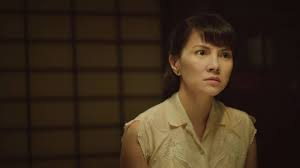Indie film by one Brian Jordan Alvarez who stars in the film, wrote it, directed it and composed the music. Quite a prolific young man too. This slim (in content rather than time) effort is supposedly set in Colombia but never leaves California. Ivan (Alvarez) is a gay part American-part Colombian artist living in the latter country.
His best friend Christian (Peter Vack) comes to stay along with Cole (Morgan Krantz), his brother. Both are supposedly straight but Ivan senses some come-on vibes from Cole and responds to that. Cole blows hot and cold. “I’m straight but I want you to fuck me” logic!
Christian gets to find out and turns violently homophobe and the two brothers leave. Ivan finds it hard to pull himself together after that despite having other relationships and later he has an opportunity to meet up with Cole again and discover the truth.
Amongst these rather unconvincing comings and goings are the entrances and exits of different friends: Eli, a gay feminine doctor, Stephanie, an irritating American tourist, some women the brothers were screwing and some men Ivan meets on the beach.
Even the art dealer Ivan works with is a Yankee pretending to be Colombian and the only Spanish occurs when he beds an Argentine. All of the bit players give him some advice or something to reflect on. Character development and rationale for acts are not in much evidence here and apart from trying to show the life of a gay man who isn’t very fulfilled in love we really don’t get much idea of what the point was. Persevere could be one message but what for when it was pretty obvious Cole was unlikely to commit. Ivan says several times “I fell in love with a straight man” and suffered but what the spectators should take from this is unclear. Just like the gratuitous sex and nudity. Mostly, it seems like an ego vehicle for the ubiquitous Alvarez who is not even a very good actor.
1 star plus














































































